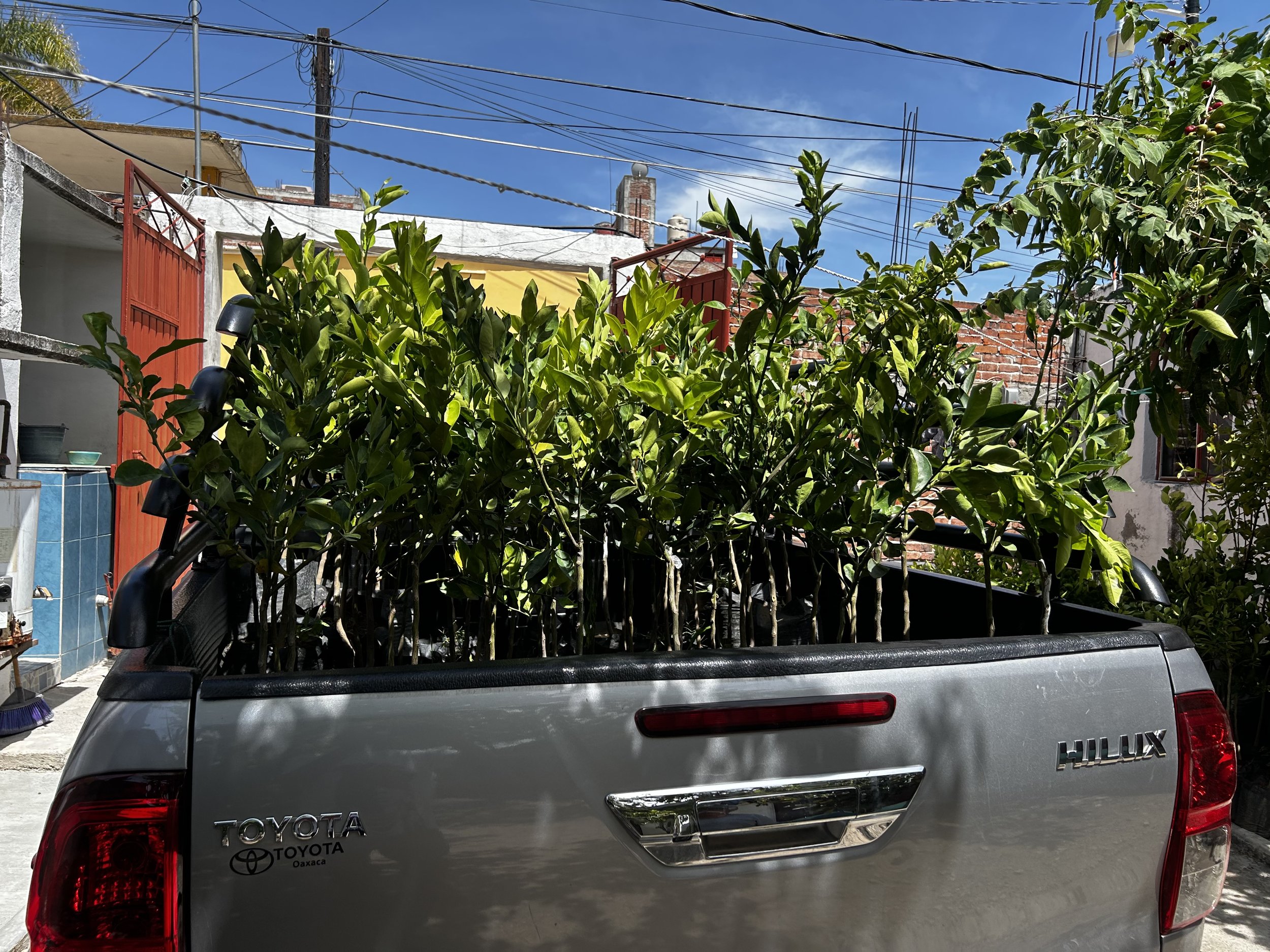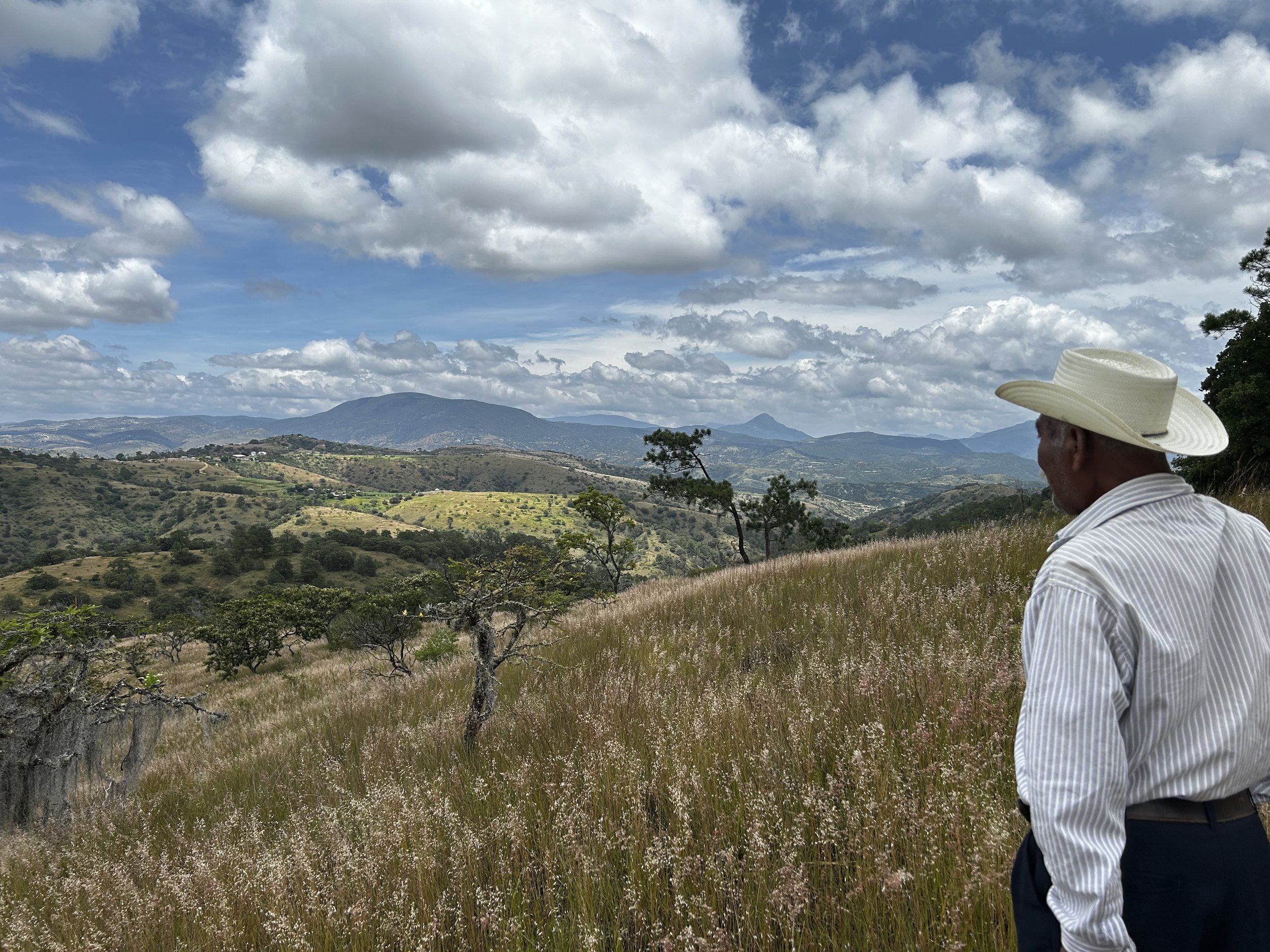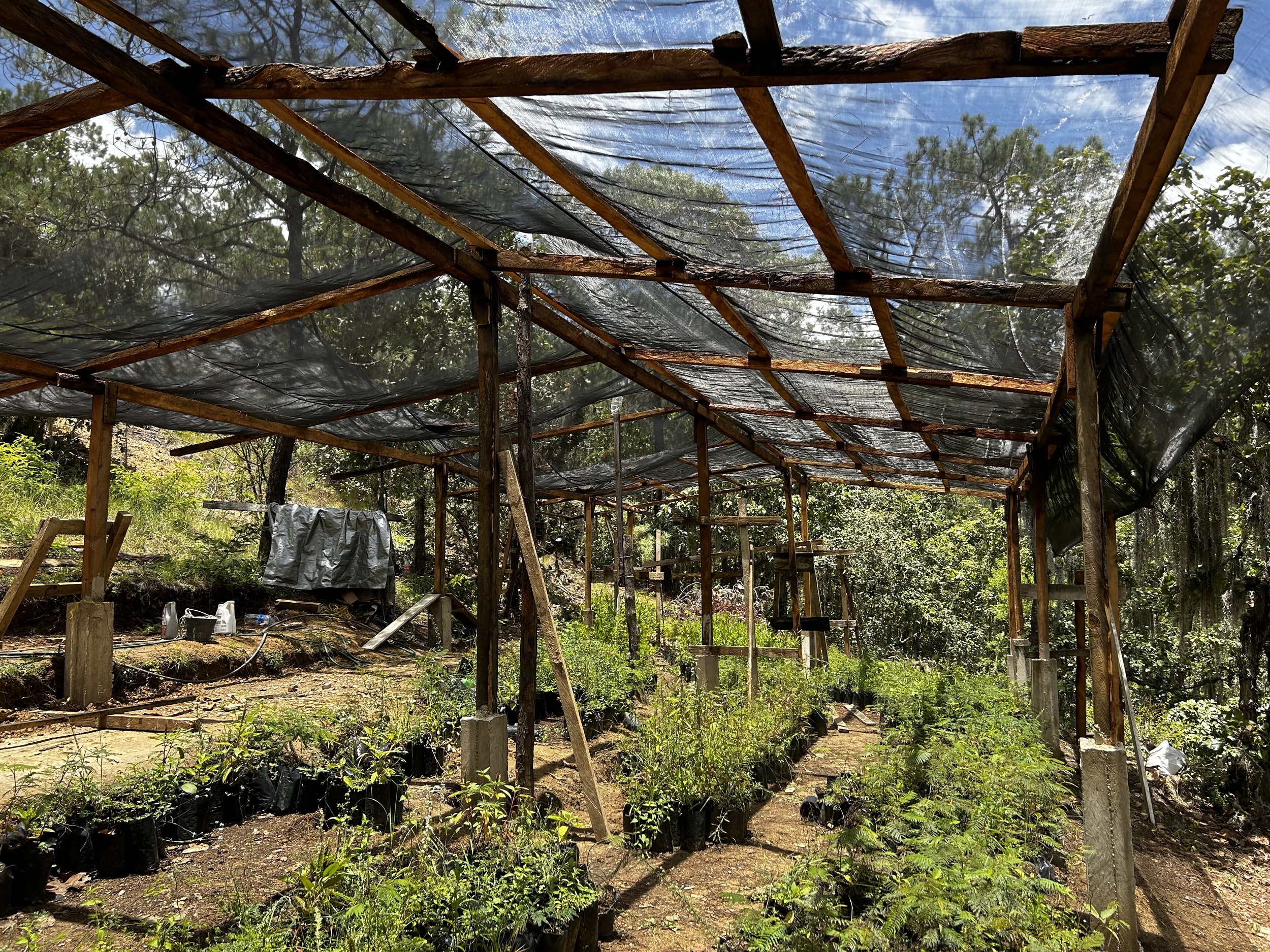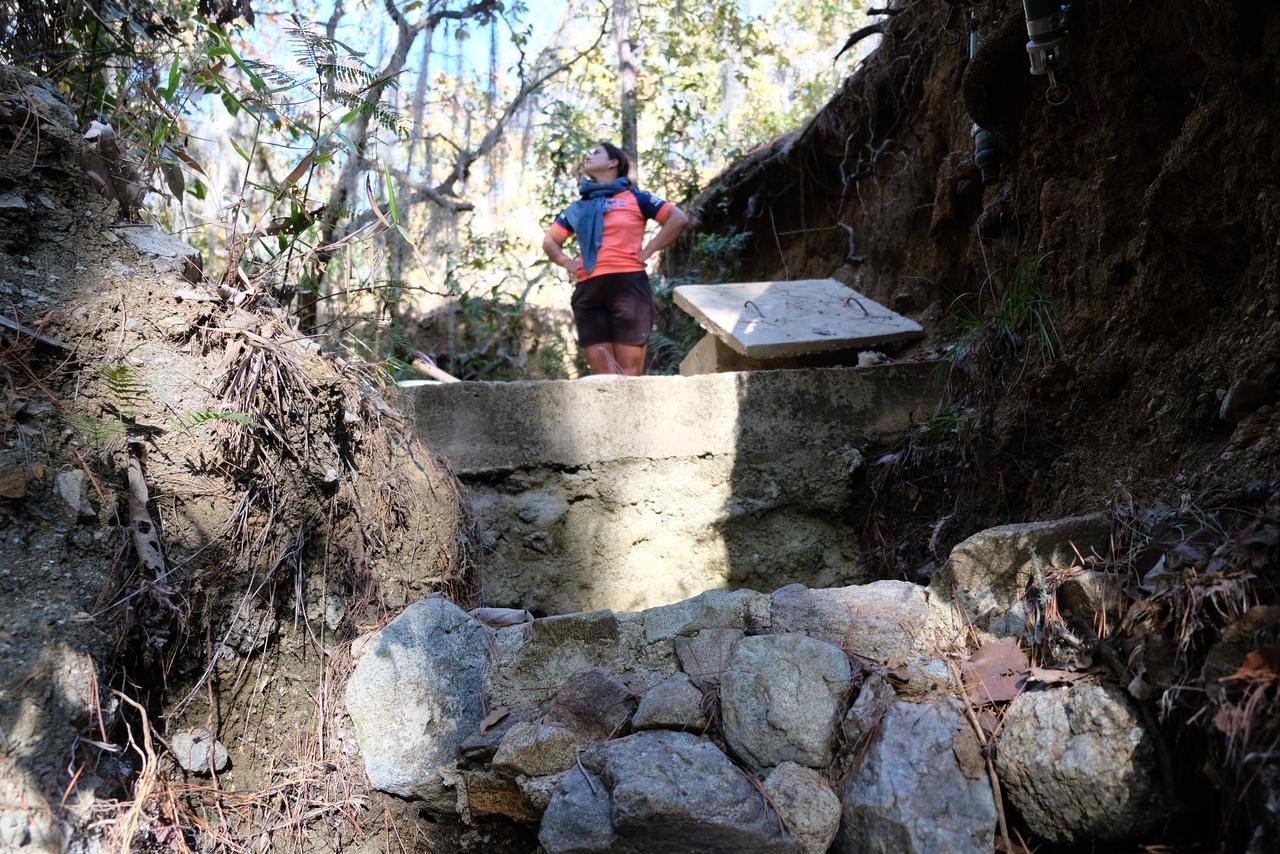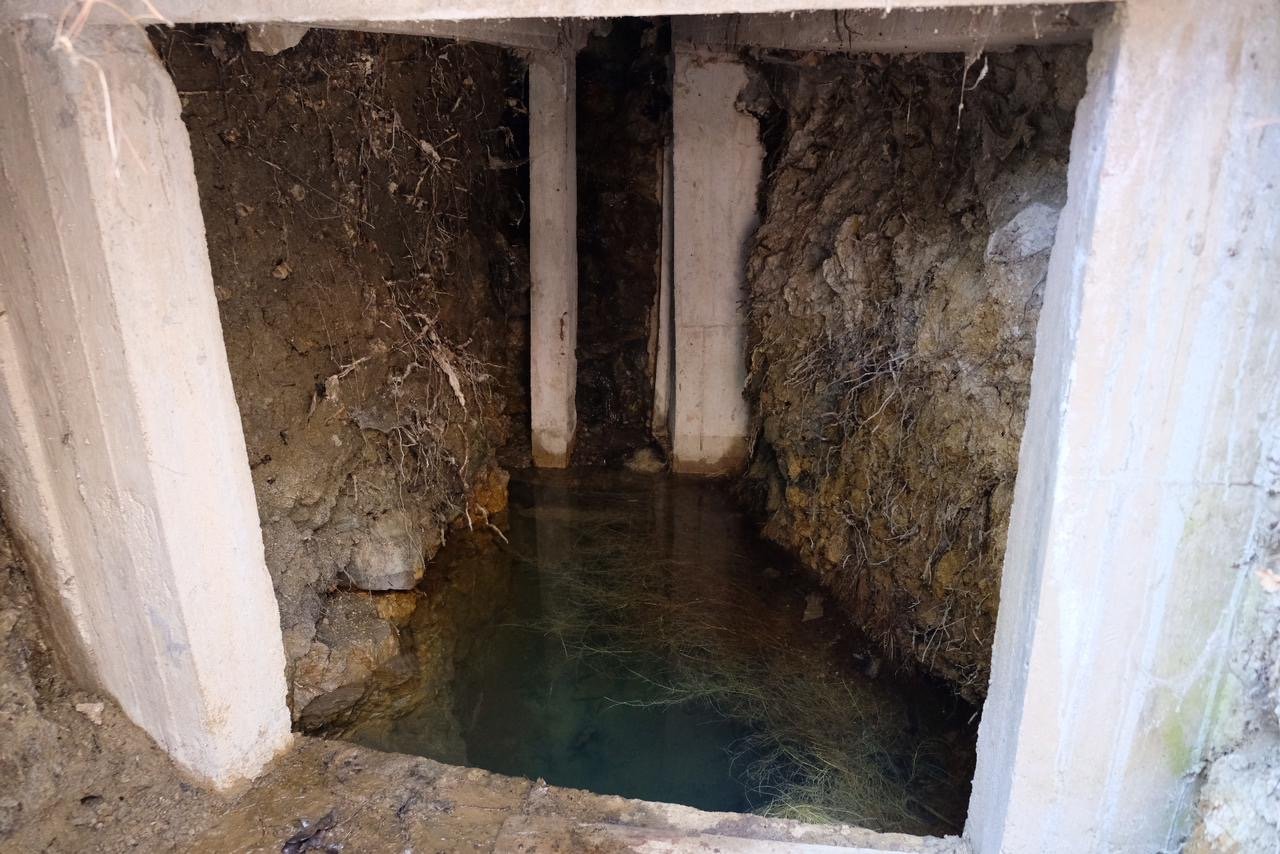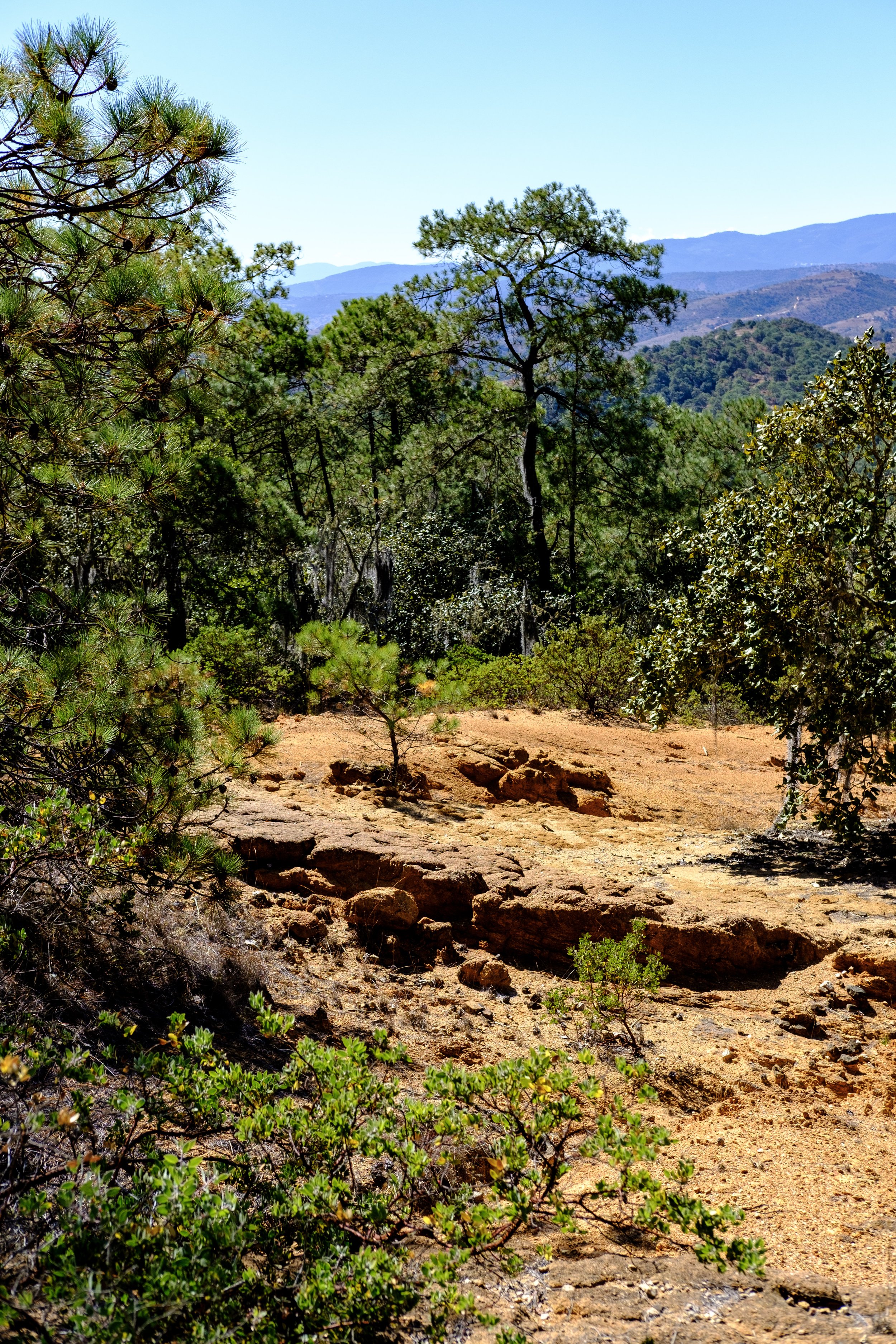Looking Back, Looking Ahead
Hello friends, greetings from Oaxaca. Welcome to our inaugural journal post.
As we embark on the planting season, we want to take a moment to reflect on the work we have done over the last 3 years and announce our current fundraising efforts. Together we have accomplished so much, and we are so proud and eager to share more of our progress, story, and journey with you, our community. Before doing so, we’d like to take a moment to acknowledge the present.
We recognize that this year, the people of Oaxaca are deeply affected by historic water scarcity and a significant increase in wildfires, some of which have been burning for over a month. Globally, we struggle in a climate of instability fueled by imperialism, social disparities, gentrification and political unrest. In our own struggle, we fight for indigenous sovereignty worldwide, in solidarity with all global anti-imperialist movements. We recognize we are all connected. We hope that this call for solidarity via financial support of our work resonates with you. In the face of grief and loss in the world today, your solidarity continues to inspire and uplift.
Our beginnings.
2019 - 2020
Ofelia, as most of you already know, is my mother and co-collaborator of Proyecta Rosenda. I started spending more time with Ofelia winter of 2019, right before the pandemic. I was in a transition period, and began to invest more of my expertise in my homeland while still working in the U.S. to make a living. I knew that I wanted to work on the intersection of environmental food justice, gentrification and food sovereignty. I was ready to be home more and participate in my own community's empowerment towards collective liberation. In December of 2020, I went home to be with mom for a while.
Ofelia lives in a working class colonia, and came about her land there during a peasant struggle in the 80’s when the city started to really grow. Back then, the population was approximately 155k people. Now, with continued growth fueled by tourism and gentrification, the population of Oaxaca City and its surrounding colonias sits at around 800k people. When I was growing up, mom’s colonia was still on the periphery of the city. Now, it’s well within the ever growing perimeter, yet she and her community face water scarcity on a daily basis.
Ofelia and agave
It all started one of those December mornings. After chatting with Ofelia in the sun, she called me out to come help her move a hose to fill water into a large plastic container. The weak trickle of water from the hose did not have much pressure and wouldn't even make it 2 meters.
We started talking about her water usage and access and I realized then it was something that she often thought and worried about. At that point she was getting water delivered from the city once a week, sometimes only once every two weeks. Though mom’s house is within the city limits, her access to water is limited and insecure. I started to think about the communities that aren’t in the perimeter, that do not get water delivered, and wondered how they cope. Mom and I brainstormed. We spoke about potential solutions. We decided that at least we can plant trees to rebuild resilience in our watersheds, and while doing so raise intersectional consciousness and develop more community centered solutions.
Ofelia and her arbolitos
The early stages.
2021
We now knew our focus was to be on reforestation. So, in 2021, Proyecta Rosenda’s first planting year, we emphasized a high volume of trees. We started with a bang, and distributed over 16,000 saplings purchased from local nurseries with the help and support of our family.
Orange Trees for Delivery
Ofelia Picks Peaches
During this first year, I quickly realized many people in the community were skeptical, and with valid concern. My implementation of the project echoed that of typical NGOs. Why were we giving away trees for free? Were we really not expecting anything in return? Who’s best interest is actually in mind? Some people expected compensation, which is also valid as they were offering the use of their land for the project.
After spending so many years in the states working in the non-profit industrial complex, I had absorbed western tendencies that missed the mark back home in Oaxaca. I thought starting with urgency and more is best. Although the sheer number of trees was a huge success, my time back home showed me that we needed to prioritize and invest much more in building trust and strengthening the community.
Then I realized: I forgot our traditional protocol, I hadn’t consulted the elders. I reevaluated my approach completely. I had to humble myself and remember that the land and indigenous people are not separate, we are one.
The support of the elders was to be essential for not only the success of this project, but for the cohesion of the community overall and to all similar initiatives we take collectively now and in the future. Community must be centered in all our processes and initiatives.
We shifted focus on building relationships, beginning with fifteen families in Ofelia’s community. We paid a ten-person community work crew for planting efforts over the course of a few months, and shifted to focus on land we have access to within the family.
Tio Flavio
Community.
2022
In 2022 we reprioritized. We scaled back the volume of our plantings significantly, and shifted our focus to building trust and bolstering engagement with participating and curious families. I began to talk more with my cousins and loop them into the project. We centered the council of elders, and out of a number of conversations with Ofelia, my uncles, and other elders in the community, we decided to host a barbacoa and community meeting to discuss the project. About 20 people attended that first barbacoa. We began to hold more meetings in Llano Verde, then Santa Maria Albarradas with the mezcalero family of Dos Pasiones. More and more people came into the fold.
Barbacoa pit
Community meeting
Climate change was a primary topic of conversation during those first series of meetings. We were experiencing it first hand, our water becoming more and more scarce. We discussed unchecked extraction, and recognized this exploitive and unsustainable practice needed to be addressed and counteracted head on.
At the end of 2022, we secured land with an ancestral spring called Hierba Santa by the elders in Llano Verde, near Ofelia. The spring hadn’t been tended to since my uncle passed in the early 90s. The barranca sits between two mountains, and due to topography sediment had collected over time. We began the process of digging out the sediment by hand.
Hierba Santa, Water for Us, Water for Wildlife
Also during this time, we began to build our tree nursery in Llano Verde near the spring. We had already purchased an initial stock of 5,000 saplings, a mix of native and fruit trees, in an effort to become vertically integrated, lower costs, and ultimately to gain more operational independence.
The Nursery
Momentum.
2023
In 2023, we saw a lot of momentum, ramped up multiple projects including the water tanks and the construction of the nursery, and expanded our outreach to neighboring communities.
Early in the year, after removing much sediment from the spring, we began construction of the water tanks. Hierba Santa proved to be abundant, and filled up daily during the construction of the cement holding tanks, and each work day we had to dig to clear it. We finished the construction of the tanks in April of 2023. The tanks now hold up to 4,000 gallons at a time, and act as a drinking reservoir for fauna as well.
We secured permits to harvest three trees in order to clear a space for the nursery and provide wood for its structure. The trees were milled by hand in situ by one crew, and the cement footings were laid and the nursery structure built by another.
Well builders
Well in Progress
Well Reservoir in Construction
Our community had really begun to gel. People were invested, collaborating and taking initiative. The projects were now guided by elders. We had formed real trust between us. The saplings were well received with participating families, the plantings successful, and people in neighboring colonias were intrigued. We continued our outreach organically, engaging those who came to us and began to work beyond Albarradas and Llano verde. We began to work with families in El Cortijo, San Jeronimo, and Ojo de Agua, as well as with communities in el valle in Tlacolula and Matatlan.
In Winter of late 2023, Ofelia began a soil remediation project for the nursery. We learned that the trees cannot survive or take root in the heavily compacted clay that is exposed in certain regions, especially in the mountains, where the land is sloped. Over the past number of centuries, due to deforestation and other exploitation of the land for foreign and outside interest, the top soil has eroded, leaving bare red clay on the surface. Ofelia is currently utilizing amendments such as peat, vermiculite and other organic materials. Our goal is to move away from purchasing amendments, and build an infrastructure to create and provide our own remediation techniques using locally available materials and incorporating systems such as the Johnson Bio-Reactor Compostor.
Soil degradation
Newly Planted Native Pine Tree in Eroded Soil Inspires Remediation
Stay tuned for our next post. We’ll follow up in the coming weeks with our plans and progress in this 2024 season, as well as deep dives into the stories of the Spring and Well, The Nurseries, the Communities, Ofelia’s Soil Remediation and more.
Follow us on Instagram @proyectorosenda
Thank you for your continuous support as we embark on our biggest fundraising campaign yet. We will continue to call for direct mutual aid, working at the edges of the nonprofit world. We appeal to the people to help fund this project with the understanding that indigenous communities are the leaders and guardians at the forefront of the fight against climate change, and the struggle for liberation.
-Nef


